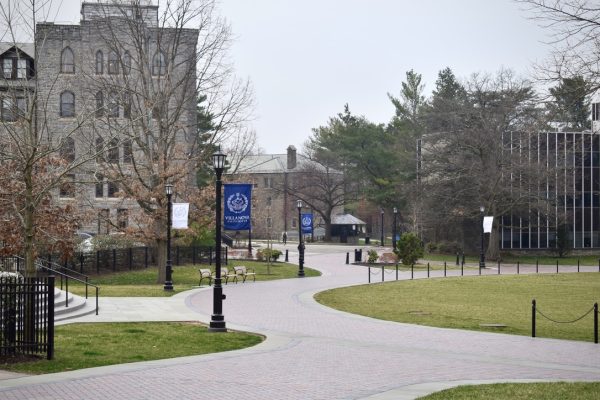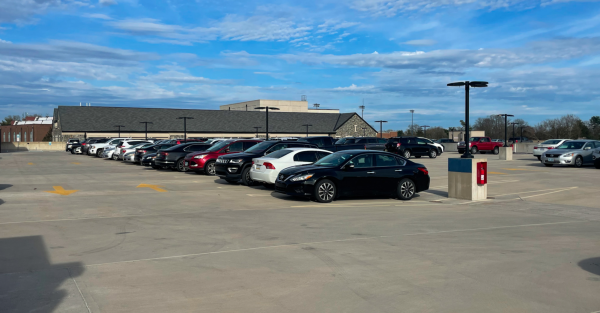Safe spaces prompt students to lean into discomfort
February 3, 2016
Last week, Will Wetzel published an opinion piece titled “Why I disagree with the concept of a safe space in college.” In it, Wetzel argues that safe spaces “contradict what college is supposed to be about” because they have the potential to inhibit open dialogue, “breed intolerance” and “censor opposing viewpoints,” thus leaving participants unprepared to enter “the real world.”
Wetzel’s argument confused me. Nothing has prepared me for “the real world”—and exposed me to new perspectives—more than Villanova’s so-called “safe spaces”. They’ve taught me how to think more critically, communicate more effectively and act more conscientiously.
Wetzel doesn’t define what he means by “safe space,” but I think Arao and Clemens (2013) define it best as a “learning environment that allows students to engage with one another over controversial issues with honesty, sensitivity and respect.”
I’m not sure how Wetzel has encountered these environments on campus, but I’ve been exposed to them largely through Villanova’s Intergroup Relations (IGR) program—a collection of one-credit discussion-based courses specifically designed to foster dialogue about how social identities (such as race, gender, socioeconomic status, sexual orientation and religion) influence participants’ lives. Classes are limited to 12 students and balanced so there is no majority group in the room.
As a result, it’s hard for me to understand Wetzel’s characterization of safe spaces as “a figurative ‘bubble,’ censoring people’s differing beliefs.” IGR courses are engineered to achieve the maximum possible diversity of experiences, and as a result, pop more bubbles than they create. For example, my first IGR course—on race—was the first time I’d ever been in an academic space that wasn’t majority white. Consequently, IGR’s conversations about race were different from any conversations I’d had before.
Rather than censoring my beliefs, IGR challenged them. The facilitators encouraged us to voice our opinions and ask each other questions, listening to understand the speaker’s perspective. Because we were sharing our experiences, there was never a right or wrong answer. IGR gave me the chance to ask questions and share thoughts I was afraid to ask elsewhere—and I grew as a result.
Wetzel is right when he says that college is a “time for us to grow.” He is also right when he says that “Part of developing as a human being is learning different ideas and how to deal with those who have a different set of beliefs or values.” Simply put, that’s what I—and many others—actually get out of IGR.
“Our different perspectives are rooted in our own personal experiences and our upbringing,” Director of the IGR program Dr. Brighid Dwyer explained. “When we hear the stories of others, we are better able to understand where they are coming from and why they might hold a particular point of view.”
My experiences aside, Wetzel’s critique seems to hint at a popular misconception of safe spaces: safety guarantees comfort. If students operate under this assumption, I could see how they might feel justified “expel[ling] beliefs that do not match up with their collective views.” It’s not an assumption held at Villanova—“lean into discomfort” is a common ground rule—but regardless, IGR and similar programs are moving toward a new paradigm: a brave space.
“In IGR we have come to realize that safe space is not the best term to use to capture the environment needed to honestly share different perspectives,” Dr. Dwyer said. “Instead, we are using ‘brave space’ or ‘courageous space.’ This better represents what we are trying to create . . . It takes courage, not safety, to present a point of view that differs from your peers.”
To this effect, I do want to recognize Wetzel for sharing his perspective and contributing to a larger dialogue. But I also want to challenge him to consider the ways in which his argument – including claims that “occasional discrimination” is a “negative aspect of reality” that we “need to get used to . . . and learn how to deal with . . . in an effective way”—might be a result of his particular perspective.
Before I took IGR, I likely would’ve agreed with Wetzel. As a white male, I hadn’t experienced discrimination on campus, and my attitude toward discrimination could best be described with the song “Everyone’s a Little Bit Racist” from Avenue Q. I had grown up thinking my life experiences, for the most part, were normal. Therefore, since I hadn’t experienced discrimination, I didn’t think it was something other people normally experienced. From my perspective, discrimination was abnormal—and thus something that could be brushed off.
But in my IGR class, I had the chance to listen to others, including students who didn’t mirror my experiences, and share their perspectives. Although they might not have thought Villanova was a “war zone of intolerance,” they did share stories of how they experienced racism in their everyday lives.
In the face of this information, I began to have a much harder time believing discrimination was occasional or harmless enough to tell members of marginalized groups to “deal with it.” Furthermore, I started to realize that discrimination is the result of larger systems of power and privilege—systems that I not only benefit from, but perpetuate. I learned that other people, who had been experiencing discrimination throughout their lives, already knew how to deal with it—perhaps a more important lesson for me was learning not to discriminate, unconsciously.
I bring up this story because I think it illustrates the full potential of IGR. I never felt like my beliefs were dismissed or my speech repressed, but I was able to realize the limitations of my experience and glean a fuller understanding of the world. IGR widened my perspective and introduced me to new ways of thinking in a way that no other class has. It also gave me the skills, language and confidence to continue those discussions outside the classroom.
Wetzel is right: college should prepare us for the wider world. Brave spaces like IGR give us the chance to engage in vital conversations in which we might otherwise feel hesitant or uncomfortable. They’re places to learn free from fear of judgment – and spaces I would invite Wetzel to join.





